Here are the outdoor games we have prepared for the mobility in Lithuania
The Games Prepared by the Romanian Team
The Romanian Erasmus+ project team of “Constantin Noica” Theoretical High School Sibiu have prepared two outdoor games, as it was provided in the description of the mobility in Lithuania. Their names are: 1. “Country, country, we want soldiers!”; 2. “I have lost a handkerchief”. The descriptions of the two games were made by the Romanian team bilingually, namely in the mother tongue and in English, the language of the project. An edifying photo has been added to each description. The second game also includes a song, the lyrics of which were rendered in the description of the game.
Gabriela Mirela Jugar, coordinator ”C. Noica” High School Sibiu
Country, country, we want soldiers!.pdf
Țară, țară, vrem ostași!.pdf
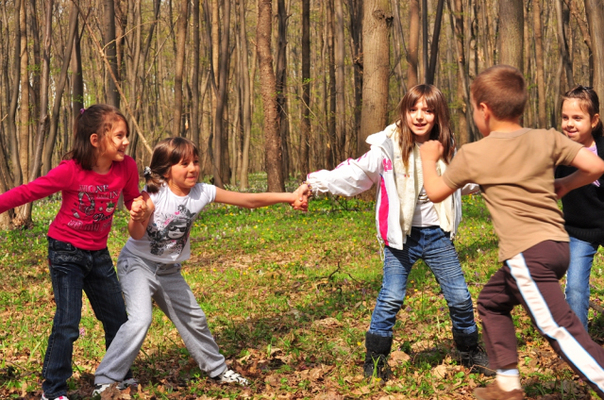
Jocurile pregătite de echipa română
Echipa de proiect Erasmus+ din România a Liceului Teoretic „Constantin Noica” Sibiu a pregătit două jocuri în aer liber, așa cum a fost prevăzut în descrierea mobilității din Lituania. Numele lor sunt: 1. „Țară, țară, vrem soldați!”; 2. „Mi-am pierdut o batistuță”. Descrierile celor două jocuri au fost realizate de echipa României bilingv, respectiv în limba maternă și în limba engleză, limba proiectului. La fiecare descriere a fost adăugată o fotografie edificatoare. Al doilea joc include și un cântec, ale cărui versuri au fost redate în descrierea jocului.
Dana Bratu, profesor al Liceului ”Constantin Noica” Sibiu, România
I have lost a handkerchief.pdf
Mi-am pierdut o batistuţă.pdf
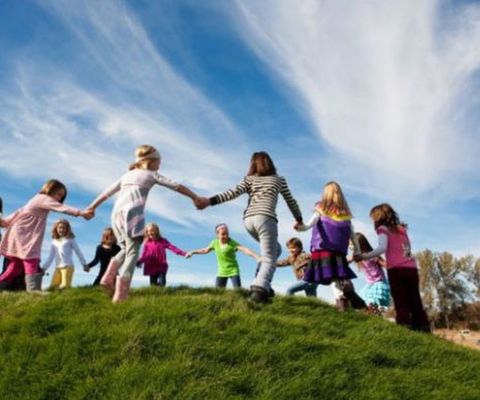
Marbles Game
The Turkish team of pupils intend to teach the pupils participant to the mobility in Lithuania “Marbles”, a game for children over 8 years. They prepared in a Word document a material describing this game (ingredients, preparation time, and recipe for fun). The Turkish pupils specified a few aspects: tips for playing with marbles, how to play a game of marbles, what does it mean to play marbles “for keeps”, and what kids learn from a game of marbles. They also added some evocative photos.
Umut Uysaler, coordinator, Vali M. Lütfullah Bilgin Ortaokulu, Turkey
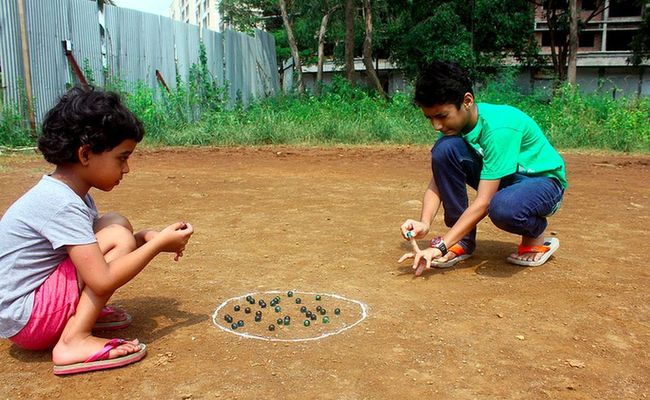
Marbles Game Description.docx
Jocul cu bile
Echipa de elevi din Turcia intenționează să-i învețe pe elevii participanți la mobilitatea din Lituania „Marbles”, un joc pentru copii peste 8 ani. Ei au pregătit într-un document Word un material care descrie acest joc (ingrediente, timpul de pregătire și rețeta de distracție). Elevii turci au precizat câteva aspecte: sfaturi pentru a te juca cu bile, cum să joci cu bilele, ce înseamnă să joci bile „pentru păstrare” și ce învață copiii dintr-un joc cu bile. Ei au adăugat și câteva fotografii evocatoare.
Gabriela Mirela Jugar, coordonator Liceul ”Constantin Noica” Sibiu, România
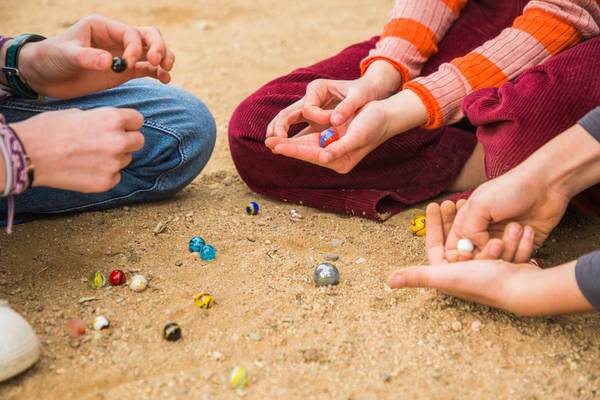
Lithuanian Games
The Lithuanian Erasmus+ project team prepared for the mobility in their own country two games: ”Dance with a Broom” and ” Cat Was Sitting on a Fireplace”. For the first it is necessary a broom and music. For the second the leader begins the game using a scarf. The two games are described in detail in the Word documents added here.
Dance with a Broom.docx
Kristina Joksiene, Prezidento V. Adamkaus gimnazija, Kaunas
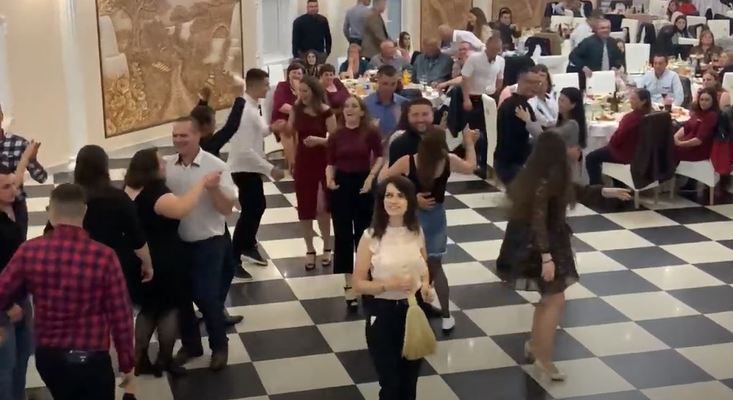
Jocurile Lituaniene
Echipa de proiect Erasmus+ lituaniană a pregătit pentru mobilitatea în propria țară două jocuri: „Dansez cu mătură” și „Pisica stătea pe șemineu”. Pentru primul este nevoie de o mătură și muzică. Pentru al doilea liderul începe jocul folosind o eșarfă. Cele două jocuri sunt descrise în detaliu în documentele Word adăugate aici.
Cat Was Sitting on a Fireplace.docx
Gabriela Mirela Jugar, coordinator ”C. Noica” High School Sibiu
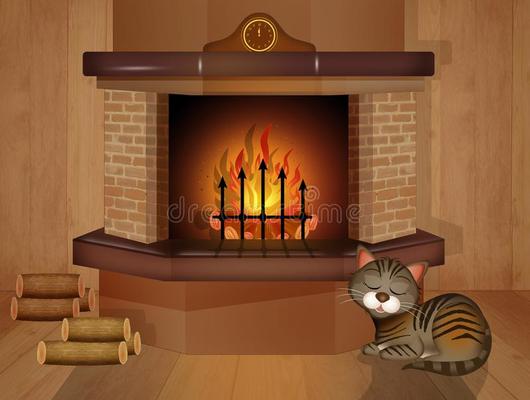
Spanish Traditional Games for Kids
María Carmen, Sara and Yurima described three of the most popular Spanish games for kids. These are: “Boliches”, played in groups of 6 or 7 students, “Brilé”, a typical game in the 8 Canary Islands, being usually played in schoolyards or in many squares and “Teje”, a very fun game that requires skill, aim, and balance, the winner being the player who finishes the trajectory before. The rules of these games are explained in PDF documents before the mobility in Lithuania.
Sheila Cerván Vidales, IES Pérez Galdós, Gran Canaria
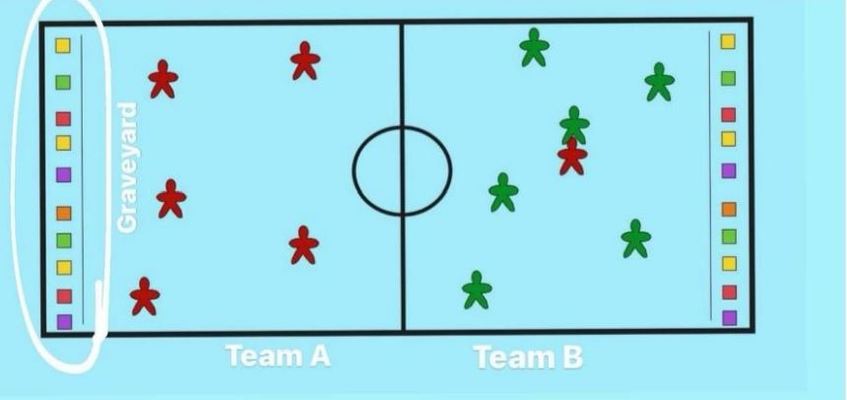
Boliches.pdf
Teje.pdf
Jocuri tradiționale spaniole pentru copii
María Carmen, Sara și Yurima au descris trei dintre cele mai populare jocuri spaniole pentru copii. Acestea sunt: „Boliches”, jucat în grupe de 6 sau 7 elevi, „Brilé”, un joc tipic din cele 8 Insule Canare, fiind jucat de obicei în curțile școlii sau în multe piețe și „Teje”, un joc foarte distractiv care necesită îndemânare, țintă și echilibru, câștigătorul fiind jucătorul care termină traiectoria înainte. Regulile acestor jocuri sunt explicate în documente PDF înainte de mobilitatea în Lituania.
Gabriela Mirela Jugar, coordinator, ”C. Noica” High School Sibiu
Brile.pdf
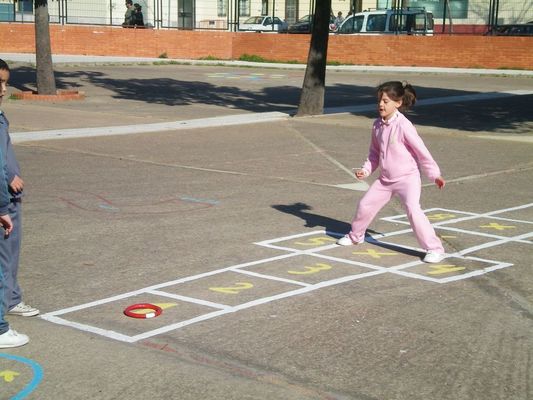
Polish games
One, two, three - baba yaga is watching!
It is presented in this Word document with its 8 moments.
Polish-game-123-baba-jaga-patrzy.docx
You are also invited to see the movie:
Mariola Podolska-Maculewicz, project coordinator, Szkoła Podstawowa nr 2 im. Michała Kajki w Nidzicy
Cypriot Games
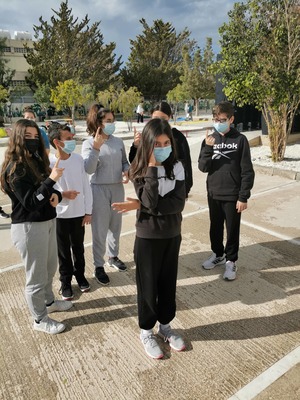
Ziziros.docx
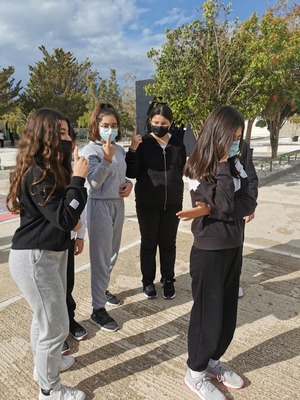
koutso.docx